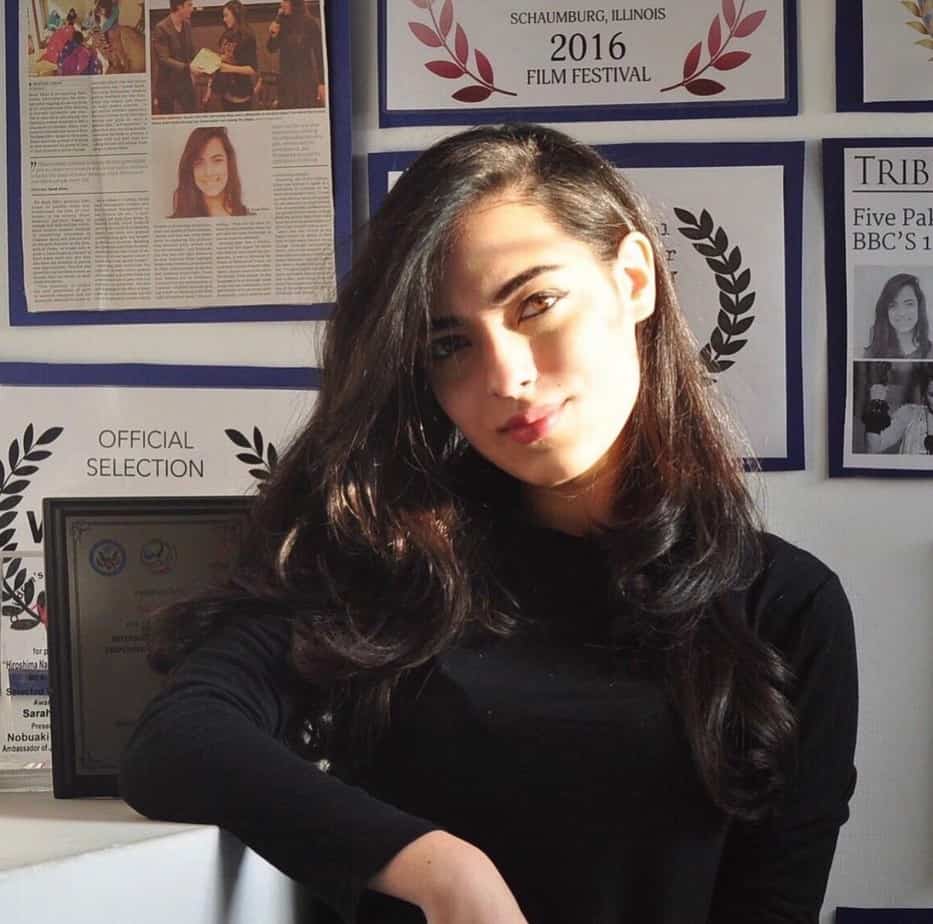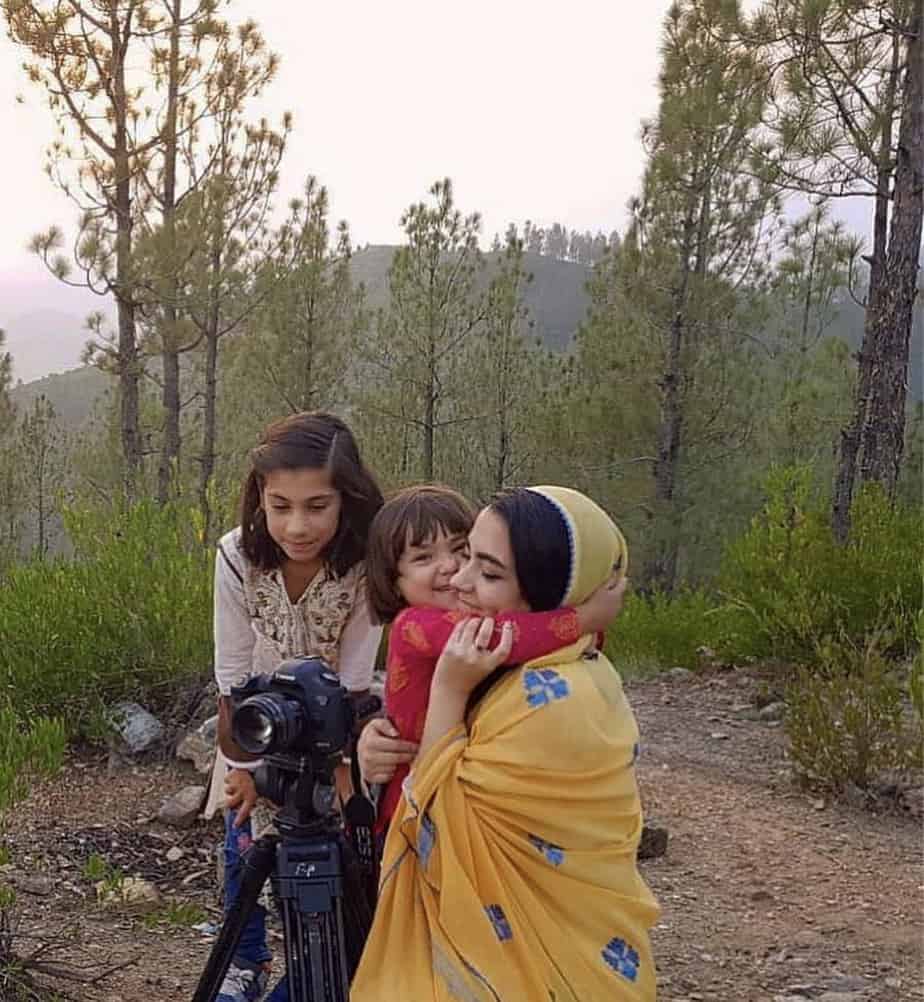Climate change is something we don’t talk about enough. It’s dramatically changing the world and we have the power to slow it down with our actions, but we fail to have important conversations about it. Sarah Jehaan Khan is trying to change that. An advocate of climate and human rights issues, Sarah, is a filmmaker who has produced short films focusing on those very topics. Her most recent short film – Passoon – won first prize at the Girls Impact The World Film Festival. Sarah travelled to the village of Dir in KPK to shoot this film which introduces us to a young climate activist, Manal Shahd, who proves that age is just a number. Scroll down to find out more about this talented young filmmaker who also happens to still be a student!
Passoon is linked below.

Tell us about yourself. You’re a student, but you’re also a filmmaker. How has the experience of balancing those two roles been?
Sarah: It was rather challenging but I managed to film over the vacations I had, and later edited the footage in Oxford during term time. The process of creating the product in two different countries was also exciting, though, because I was able to merge the knowledge I was acquiring at university with the perspectives and stories I was documenting in Pakistan. In terms of the workload, it was a tricky balancing act but definitely worth it in the end.
Your short films focus on issues that are very real such as rainwater harvesting, or the harmful effects of pesticides. What is your thought process behind selecting these topics?
Sarah: Developing countries such as Pakistan are disproportionately affected by the impacts of climate change, and groups such as women are far more vulnerable to these impacts. This also means that rural women have invaluable knowledge regarding managing natural resources and climate adaptation strategies.
The methods such as rainwater harvesting which these films document are simple, inexpensive, but efficient strategies for confronting the impacts of climate change which I felt needed to be seen and appreciated both locally and internationally.
Your most recent film – Passoon – is about climate change and won first prize at the Girls Impact The World Film Festival. How did it feel to represent Pakistan at such a stage?
Sarah: More than anything it was exciting to have Manal’s story be heard on such a large international platform, and to amplify the voices of young climate activists leading indigenous movements – especially the unsung heroes working in remote locations such as Dir, far from mainstream media’s attention.
Passoon revolves around a young climate activist, Manal Shad. How did you come across her?
Sarah: I came across a video of Manal on social media where she was giving a speech to a congregation of men in Dir about social issues in her hometown. I was astounded by the authority and passion with which this 12 year old girl was speaking to an intimidating group of men, as well as the undivided attention they were paying to her every word. I immediately knew I wanted to meet her, and once I managed to find her in Dir I spent some days at her home and visited her school where I filmed Passoon. We’ve stayed friends since then and she has been so excited to see the attention her story has received!

As you’ve described, Passoon means rising up for a cause in Pashto. What are some of the ways you hope people will rise to the causes you discuss in your films?
Sarah: Manal’s story is a wonderful example of the impact one can have on an individual basis — especially in a country which is as vulnerable to climate change as Pakistan is. In the climate narrative in Pakistan we seem to overlook the numerous indigenous, local solutions we have available to confronting the challenge. I hope we will come to appreciate how much change a single individual can catalyse in their communities and just how innovative the climate adaptation strategies in developing countries can be.
Being a woman, is it difficult to shoot some of these films in the rural areas of Pakistan? What have been some of your biggest challenges?
Sarah: The main challenge with documenting climate stories has been traveling and filming in completely new and unfamiliar regions, but Manal and her family were kind enough to let me stay at their house in Dir for the duration of the filming. There was luckily no language barrier either since Manal speaks pashto and we were able to communicate easily and actually enjoy ourselves in the process of doing interviews.
The most important aspect is always earning the trust of the individuals whose stories you are documenting — it is critical to be entirely clear about what the purpose of filming them is, and Manal was quite excited to know her story would be used as an example for other Pakistanis to follow.
What advice would you give to young, aspirational women who hope to one day also tell stories and create films?
Sarah: The failure of preceding generations in responding to the climate crisis, and taking the measures necessary to confronting the issue has been felt deeply by the youth – which is why we are now at the forefront of this movement, fully aware of it’s reality and costs for the following generations. At the same time, we are also seeing an increase in the effective and innovative mediums of tools and mediums that are being used for advocacy – such as film, poetry, technology and even virtual reality. These are all simple mediums of storytelling young people can use to address social issues they are passionate about. Rather than worrying about technical expertise, it is important to just focus on the quality and content of the story you are telling.








What do you think?
You must be logged in to post a comment.